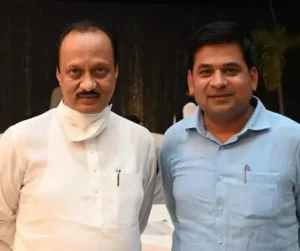The recent outbreak of NCP Latur violence has sent shockwaves through the Nationalist Congress Party’s organisational structure, exposing deep-seated factional rivalries that threaten to undermine the party’s stability in Maharashtra. The violent clashes between competing local factions have forced senior leadership to intervene decisively, with Deputy Chief Minister Ajit Pawar taking centre stage in addressing what many consider the most serious internal crisis the party has faced in recent months.
The NCP Latur violence represents more than isolated incidents of political discord; it reflects broader challenges facing regional political parties in maintaining unity while managing diverse local interests. The confrontations have highlighted the delicate balance party leadership must maintain between accommodating grassroots ambitions and enforcing organisational discipline.
 Also read: NCP Latur violence
Also read: NCP Latur violence
Deputy Chief Minister Ajit Pawar’s public condemnation of the NCP Latur violence marked a significant moment in the party’s internal dynamics. His forthright criticism of the warring factions demonstrated leadership and resolve to address internal conflicts before they spiral beyond control. Pawar’s intervention came at a crucial time when the party’s credibility was at stake, and immediate action was necessary to prevent further deterioration of the situation.
The senior leader’s approach to handling the NCP Latur violence involved both public admonishment and private reconciliation efforts. His statement calling for discipline and responsible politics resonated throughout the party hierarchy, sending a clear message that such behaviour would not be tolerated. Pawar’s leadership style in managing this crisis has been characterised by direct communication and swift action, reflecting his experience in navigating complex political situations.


Understanding the origins of the NCP Latur violence requires examining the complex web of local politics, resource allocation, and leadership aspirations that often fuel such conflicts. The clashes emerged from long-standing disagreements between different groups within the party, each vying for greater influence and control over local political processes.
The factional tensions that led to the NCP Latur violence have been brewing for months, with competing leaders seeking to establish their dominance in the district’s political landscape. Issues ranging from candidate selection for local elections to distribution of party resources have created fertile ground for conflict. These disputes, while common in large political organisations, reached a tipping point when they manifested in physical confrontations.
The NCP Latur violence has raised serious questions about the party’s ability to maintain cohesion across its various organisational levels. The incidents have exposed weaknesses in internal communication channels and highlighted the need for more effective conflict resolution mechanisms. Party observers note that such internal strife can significantly impact electoral prospects and public perception.
The reverberations of the NCP Latur violence extend beyond the immediate participants to affect the broader party ecosystem. Local workers, supporters, and even allied organisations have expressed concern about the implications of such conflicts. The violence has also prompted discussions about restructuring party operations to prevent similar incidents in the future.
Ajit Pawar’s response to the NCP Latur violence included not only public criticism but also concrete steps toward reconciliation and reform. His call for responsible politics emphasised the need for party members to prioritise collective interests over personal ambitions. The leadership’s intervention strategy focused on both immediate conflict resolution and long-term structural improvements.
The handling of the NCP Latur violence by senior leadership demonstrates the party’s commitment to maintaining discipline while addressing legitimate grievances. Pawar’s approach involved bringing conflicting parties to the negotiating table and establishing clear guidelines for future conduct. This intervention model could serve as a template for addressing similar conflicts in other districts.
The NCP Latur violence has implications that extend beyond party boundaries, affecting the broader political dynamics in Maharashtra. Other political parties are closely watching how the NCP handles this internal crisis, as it could influence alliance relationships and electoral strategies. The incident has also drawn attention to the challenges faced by all major parties in managing internal democracy.
The resolution of the NCP Latur violence will likely influence how political parties across Maharashtra approach internal conflict management. The methods employed by Ajit Pawar and other senior leaders in addressing this crisis could establish new norms for handling factional disputes within party organisations.
Looking ahead, the aftermath of the NCP Latur violence presents both challenges and opportunities for party development. The leadership’s response to this crisis could strengthen internal governance mechanisms and improve conflict prevention strategies. Party officials are considering structural reforms to address the root causes of such disputes and prevent future occurrences.
The lessons learned from managing the NCP Latur violence are expected to inform broader organisational reforms within the party. These may include enhanced training programs for local leaders, improved communication protocols, and more robust mechanisms for addressing grievances before they escalate into conflicts.
The NCP Latur violence serves as a critical test of the party’s resilience and leadership capabilities. Ajit Pawar’s decisive intervention and call for unity demonstrate the organisation’s commitment to addressing internal challenges constructively. The resolution of this crisis will likely shape the party’s approach to internal governance and conflict management for years to come.
Moving forward, the party’s ability to learn from the NCP Latur violence and implement meaningful reforms will determine its capacity to maintain unity while accommodating diverse viewpoints within its ranks. The leadership’s emphasis on discipline and responsible politics provides a foundation for building a more cohesive and effective political organisation.
Chat controls

